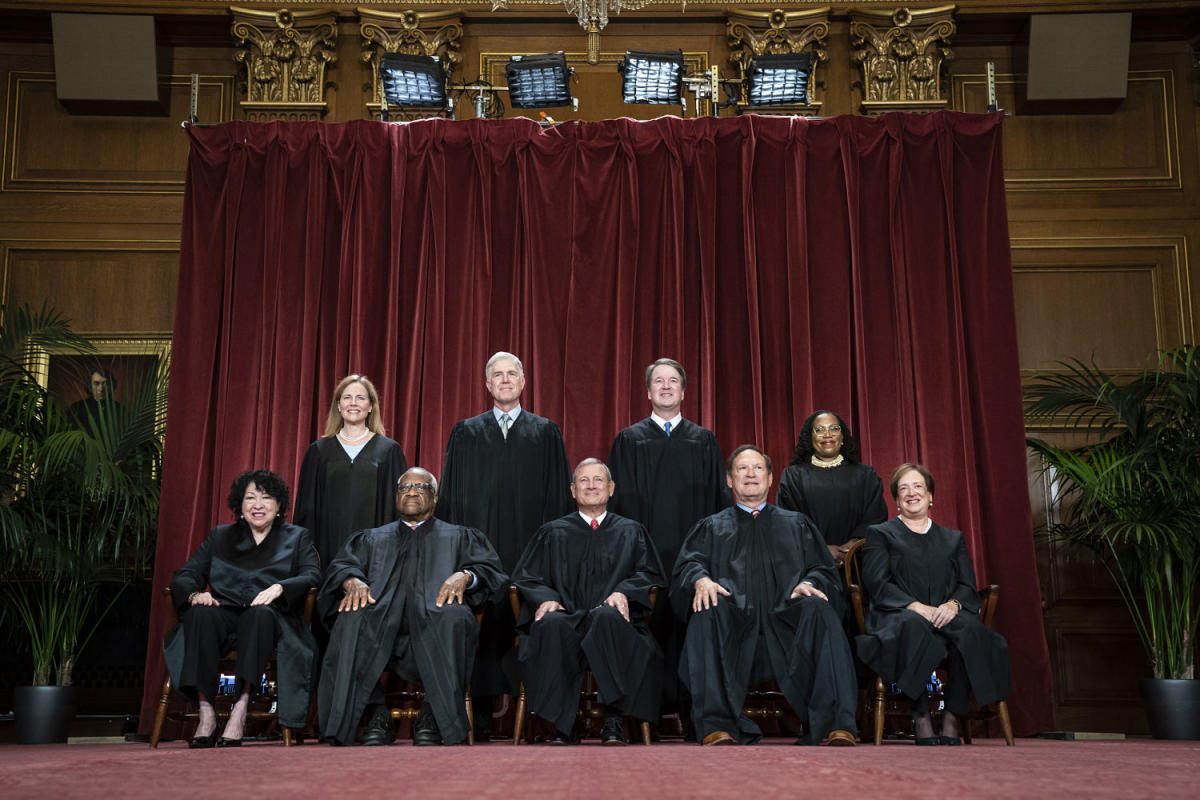The Supreme Court’s Republican-appointed majority yet again went further than it had to. This time, the court approved stingy safeguards for civil forfeiture proceedings, when law enforcement takes your personal property, such as a car, that is allegedly tied to crime, even if you’re innocent.
Led by Justice Brett Kavanaugh, the majority said Thursday that, while timely forfeiture hearings are required, the Constitution doesn’t require a preliminary hearing to determine whether police can keep your property pending such a hearing.
In declining to grant that “minimal safeguard,” Justice Sonia Sotomayor wrote in dissent, the majority “sweeps far more broadly than the narrow question presented and hamstrings lower courts from addressing myriad abuses of the civil forfeiture system.” Joined by Justices Elena Kagan and Ketanji Brown Jackson, Sotomayor wrote that she “would have decided only which due process test governs whether a retention hearing is required and left it to the lower courts to apply that test to different civil forfeiture schemes.”
Kavanaugh was joined by Chief Justice John Roberts and Justices Clarence Thomas, Samuel Alito, Neil Gorsuch and Amy Coney Barrett. (Gorsuch joining the majority is somewhat notable, given his sometimes libertarian approach, and he did write a lengthy concurring opinion, joined by Thomas, that criticizes civil forfeiture — but that didn’t stop them from going along with the majority.)
Dissenting, Sotomayor recalled the procedural history of the appeal that the majority has stretched to reach this result. She noted that the court took the case to address the question of which test should govern due process challenges regarding retention hearings. Instead, she wrote, the majority “reaches far beyond that question to hold that people whose cars are seized by the police never have a due process right to a retention hearing.” The majority’s reasoning was flawed, too, she explained, because it takes precedent out of context.
Sotomayor stressed that the ruling only applies to retention hearings and doesn’t “foreclose other potential due process challenges to civil forfeiture proceedings.” In light of Gorsuch’s separate opinion, there may be gettable court majorities against the government on future civil forfeiture–related appeals. Indeed, the Donald Trump appointee wrote that he agreed with the dissent “that this case leaves many larger questions unresolved about whether, and to what extent, contemporary civil forfeiture practices can be squared with the Constitution’s promise of due process.” So this may end up being a silver lining from the decision.
On the broader point of the court making its decisions broader than it has to, the Democratic appointees’ dissent echoes their similar recent complaint in Trump v. Anderson. There they faulted the majority (with whom they agreed on the bottom line) for going further than necessary in cementing Trump’s place on the presidential ballot.
Thursday’s decision in the forfeiture case, Culley v. Marshall, comes as the justices are starting to issue their final decisions of the term. Still among the pending rulings is Trump’s immunity appeal, in which the court has signaled it’s poised to go further than needed again and to further delay the federal election interference trial in the process.
There are many more appeals for the court to decide — both related to the former president and otherwise — over the next couple months. Today, the court isn’t off to a great start.
Subscribe to the Deadline: Legal Newsletter for weekly updates on the top legal stories, including news from the Supreme Court, the Donald Trump cases and more.
This article was originally published on MSNBC.com

Amanda Smith is a dedicated U.S. correspondent with a passion for uncovering the stories that shape the nation. With a background in political science, she provides in-depth analysis and insightful commentary on domestic affairs, ensuring readers are well-informed about the latest developments across the United States.



/cdn.vox-cdn.com/uploads/chorus_asset/file/24171032/226393_Microsoft_surface_Pro_9_Intel_AKrales_0190.jpg)


